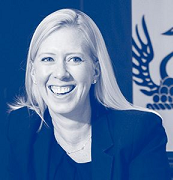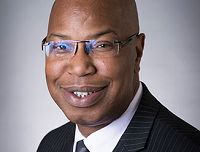Casting our minds back to the property industry of yesteryear, diversity was not even a consideration for big real estate businesses. However, the past ten years have seen the sector make enormous strides in hiring and retaining a diverse workforce.

Undoubtedly there is still work to be done to shed real estate’s old school, male-dominated, image, particularly when it comes to board level appointments. The latest statistics from a recent PWC’s report found that only 19% of board level industry participants are female. That is, without doubt, an unacceptable number.
The business case for diversity has been made numerous times and its merits are practically undisputed. The OECD estimates that equalising the role of men and women in the labour market could increase GDP by 10% by 2030, while a recent PWC survey found that 61% of real estate professionals believe that workforce diversity will have a positive impact on the bottom line of their businesses.
However, the business case does not immediately alter the make-up of real estate companies. Ultimately, the fact is that there remains to be a lack of women in real estate who have the necessary experience to join boards. Why is this? It is simply because the pool of women to choose from is so much smaller than it is for men.
To address the structural challenge of a lack of female representation on real estate boards, the industry must change the proportion of women and minorities in the industry as a whole. Excellent initiatives are underway from the likes of Real Estate Balance, which are driving better representation of women and promoting real estate as an inclusive industry to work in.
Find out more: Property Week’s Open Plan campaign aims to raise awareness of the issues of diversity
However, a more fundamental perception issue remains. Namely that many female school and university students see real estate as an inaccessible, exclusively male industry or even more worryingly, are unaware of it as a career option. Within the key educational institutions that offer real estate degrees such as Oxford Brookes, University of Reading, CASS Business School and Cambridge University, diversity is an issue that has yet to be convincingly resolved. According to Which? University, only 39% of people studying Real Estate Management at Oxford Brookes are female and only 40% are women at the University of Reading’s Real Estate degree.
Grass roots
To achieve the longer-term ambition of gender parity on boards within the real estate sector, the industry needs to start at the grass roots. The case needs to be made to people in schools that real estate is more than just a viable career path for all people regardless of sex, but one that creates an inclusive environment to work in which welcomes people from all backgrounds.
However, there remains to be a good deal of work to be done to make this happen. Options such as linking senior management remuneration to diversity initiatives encourages employers to stop and think about who they are hiring. In addition, training staff to be aware of falling for unconscious biases when interviewing people is also important.
Beyond that, bolstering support of associations such as Real Estate Balance is extremely helpful. It is imperative to recognise the male and corporate champions in this process too. Ultimately, many real estate firms are still predominantly run by men and if they are leading by example and encouraging their staff, change will happen faster.
British Land, among others, has begun this process by not only attending career fairs, but also going into schools to change that perception. However, as this is a problem that affects the whole sector, all companies in the real estate sector need to work together to solve it.
The Millennial Generation
Making that case to young people is undoubtedly difficult. Issues such as work life balance have become an extremely important consideration for the millennial generation. Ensuring that a reasonable life balance is reflected in the core values of an organisation could make it an attractive proposition for graduates. Equally, empowering employees to create their own balance through flexible working can be a helpful tool in improving the quality of employees working lives.
It is important to remember that real strides have already been made in the property industry, but the distinct lack of female representation on boards and in senior leadership positions demands action. Diversity of thought contributes to a more complete understanding of opportunities and issues leading to better decision making and providing more competitive economic advantages.

At my firm, we have been successfully working with our clients to find more creative solutions to hiring women. By the time a client asks us to make sure we have a gender balanced short-list this is often too late. Broadly speaking, we have found women are much more receptive to a longer term, networking, relationship building approach.
We have been mapping female talent in specific disciplines and identifying those who are at highly rated – this is the talent our clients are interested in. With the buy-in of senior stake holders within our clients, they take the time to meet these women on an informal basis, thus creating a network and talent pool of their own to hire from as and when the time is right. It takes a lot more effort and commitment for our clients, but if they are truly committed to changing the makeup of their work force, we have found this to be a very successful route. To attract a diverse work force, firms need to not only examine their culture and behaviours, but also consider their hiring methodology.






























No comments yet